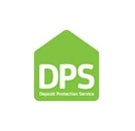As reported by Residential Landlord not all landlords understand their tax liabilities in full.
Tax is a complex subject and many landlords do not fully understand their tax liabilities, deductions or have a strategy in place to ensure they do not unnecessarily pay more tax than they should be. Many landlords are sole traders and for tax purposes classes as being “self – employed” for taxing
purposes. Some landlords may also have an “employed” job, but that does not mean they are not also self-employed and may well be required to completed a tax self-assessment to calculate how much tax is due from your rental property.
Tax, accounting and record keeping – Keep it simple!
Ideally the landlord should have a separate bank account for the rental business, even if this is just one property. This enables all the property income and expenditure to be kept separate which makes
record keeping much easier – and should a tax inspector want to verify figures in your accounting, it will be much more straight forward to do so.
Rough guide to calculating tax liabilities
A general rule of thumb to try and save for tax liabilities for rental income, is roughly the rental amount, minus the interest element of the mortgage, divided by 4. This is the amount you should save each month towards your tax bill. The final amount may be less than this once you have deducted the expenses. If you are a higher rate tax payer then instead of dividing the profit by 4, you will need to divide it by 2.
What can be deducted as business expenses
Expenses include the costs of repairing the property and keeping it maintained. It also includes fees you have to pay to letting agents, solicitors and any other services which are required in order for
you to rent the property (eg, the cost of a gas safety certificate). The largest expense in most cases is the interest element of the buy to let mortgage.
Maximising profit from your rental property, will inevitably have an impact on the tax which is due, but that it not to say you could not benefit more by increasing profit! One of the quickest ways of doing this is by checking your buy to let mortgage is the most suitable for you – buy to let mortgage
rates vary enormously, so if you haven’t had a mortgage check up recently, this should be done soon.
Belvoir Lettings Sheffield is the One Stop Specialists for Lettings including Property Management, Tenant Find, Investment and Wealth Management Advice, Fit-outs and Renovations, Furniture Packs and Investment Property Insurances and Mortgages.
Belvoir Sheffield was the winner of the Belvoir Franchise of the Year Award for 2013
For more information, please visit www.belvoir.co.uk/sheffield or call 08452 60 40 90.
Alternatively, please email us at sheffield@belvoirlettings.com
For the most uptodate information relevant to landlords and buy to let in the UK, and specifically the Sheffield Buy-to-Let Market ensure you follow Belvoir Sheffield on either facebook at http://www.facebook.com/belvoirsheffield, Twitter at http://www.twitter.com/belvoirsheff, or visit our website at https://www.belvoir.co.uk/landlord-information
News feed from: http://www.residentiallandlord.co.uk/featuredarticles/3149-understanding-tax-forbuy-to-let-landlords-with-mortgaged-properties.html










